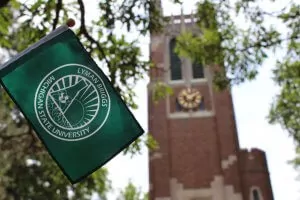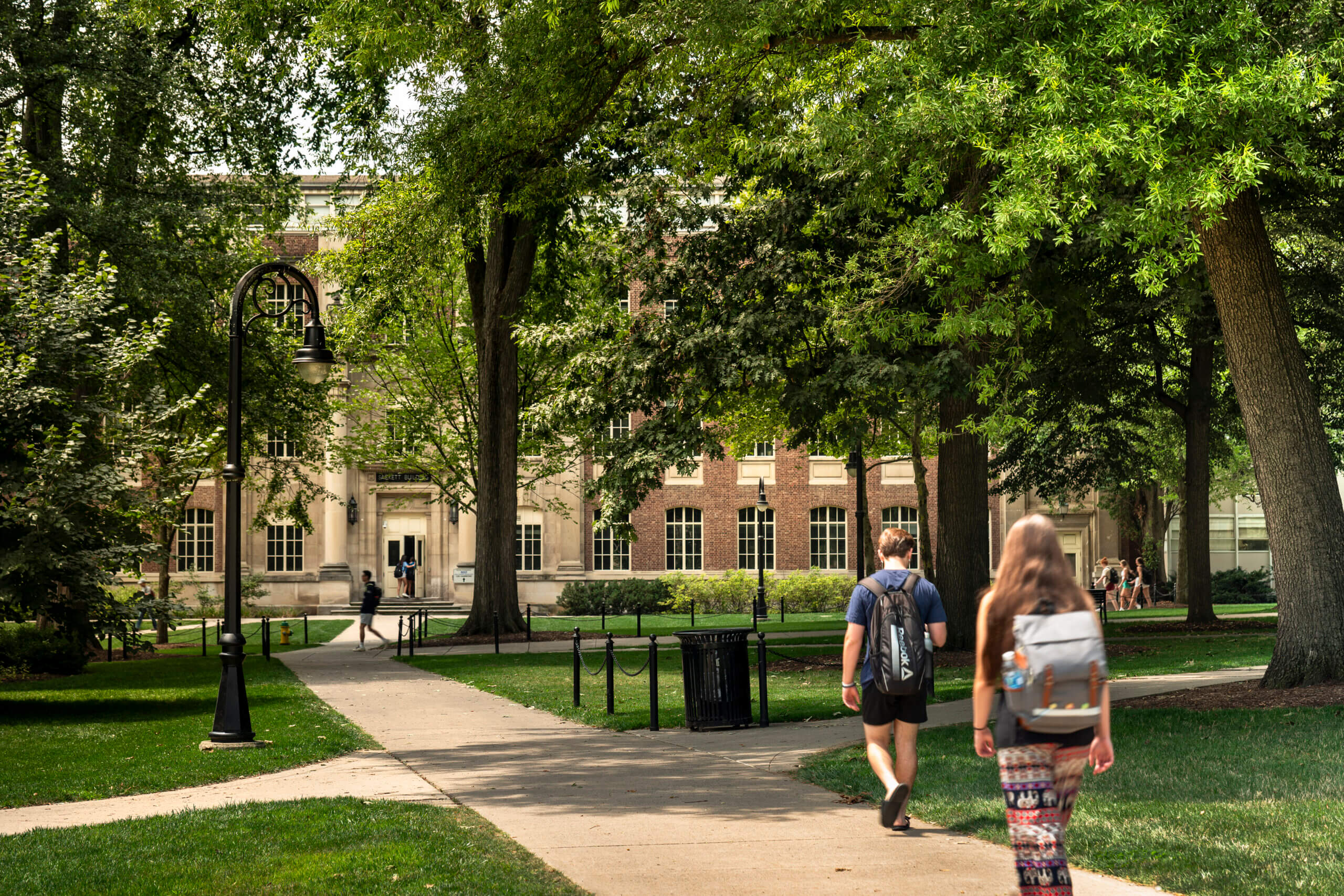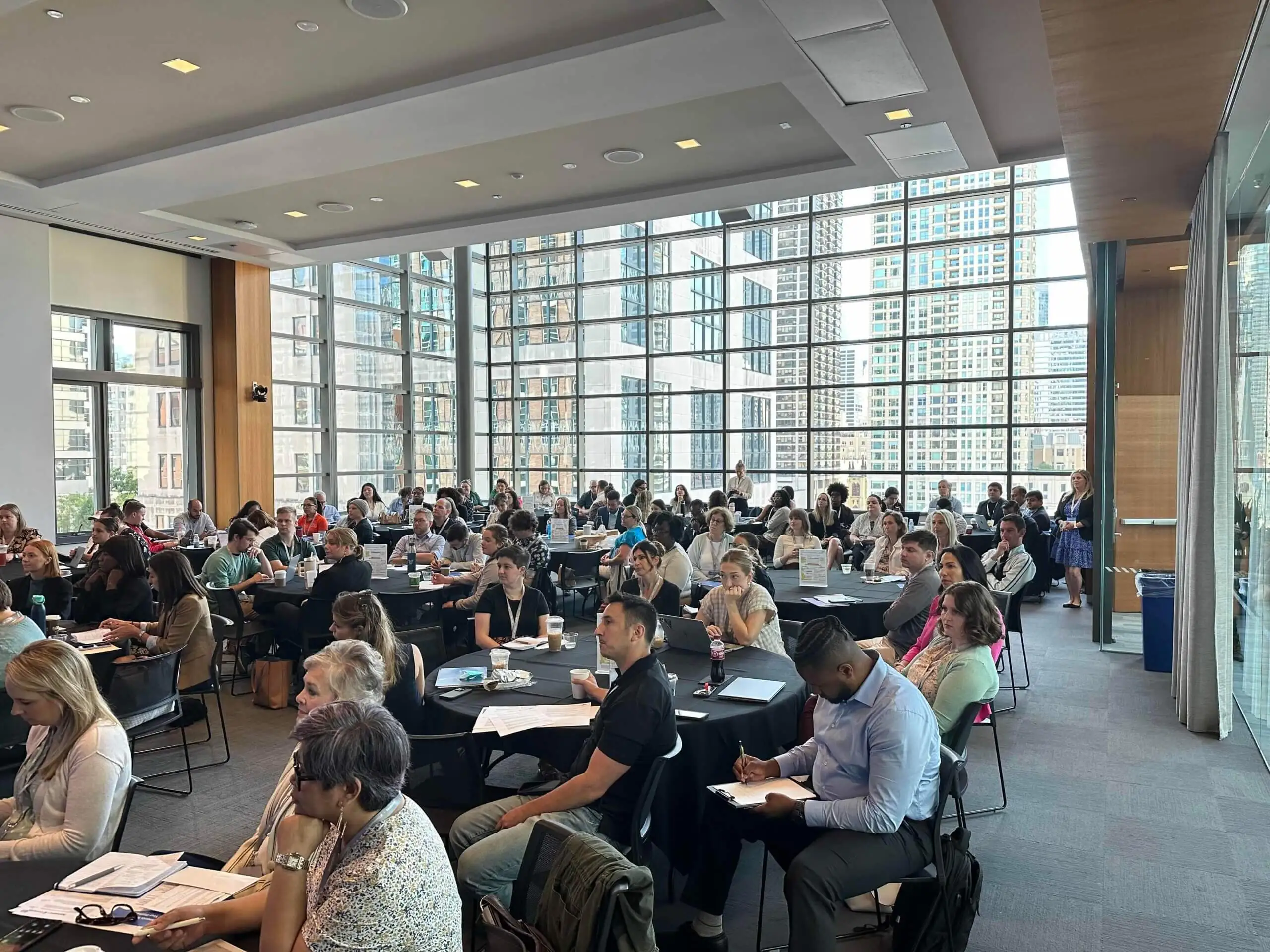Value of Higher Education
Navigating the Future
Three Key Insights from the National Student Success Conference This year, we had the privilege of joining education professionals, thought […]
Solutions
Helping higher education create transformational change across campus.
See AllFor Universities
Admissions & Enrollment
Maximize enrollment by increasing yield & reducing melt
Experiential Learning
Scale High-Impact Practices for student success
PathwayU
Redefine how students pick majors & careers with PathwayU
Student Success
Increase retention & persistence to graduation
Career Services
Improve career readiness & career navigation
Industry Partners
Connect universities & corporations for project-based learning
Alumni & Advancement
Grow alumni engagement & the philanthropy pipeline
Success Stories
Read how schools leverage PeopleGrove in their communities.
See All Stories
University of Kansas
How University of Kansas scales career services to their 375,000 alumni

Michigan State University
How Michigan State ensures academic and career success for students

University of Miami
How the Toppel Career Center joined forces with alumni to provide career guidance to students
Resources
Explore blogs, webinars, whitepapers, and more resources to enhance how students and alumni connect.
See All ResourcesBlog
Read posts about how PeopleGrove meets higher education’s ever-changing needs at every turn.
Events
In-person or online, join PeopleGrove for unmatched experiences, conferences, webinars, and more.
Research Library
A collection of stories, events, research, and best practices to transform learners’ experiences.
Super Mentors Book
The ordinary person’s guide to asking extraordinary people for help.
Innovators Community
Learn from thought leaders and practitioners in both higher education and workforce development.
About
PeopleGrove is made for learners by learners. Everyone here makes it possible for students and alumni to succeed.
Learn MoreCareers
Be a part of the next big thing for learners everywhere and start making an impact. Join us today!
Contact
Want to get in touch? Have a question? We’d love to hear from you. Connect with us.
Value of Higher Education
Three Key Insights from the National Student Success Conference This year, we had the privilege of joining education professionals, thought […]


Three Key Insights from the National Student Success Conference
This year, we had the privilege of joining education professionals, thought leaders, and innovators at the National Student Success Conference (NSSC) in Orlando FL. The event provided a forum for discussions that delved into the challenges and opportunities facing higher education today. Here are our some of our key takeaways from the event.
The NSSC kicked off with a robust conversation centered around the evolving landscape of higher education. Attendees and speakers recognized a shifting paradigm in the public discourse about the value of a college degree. This was particularly true given the recent report released by the Strada Education Foundation and the Burning Glass Institute exposing an “underemployment” problem for college graduates. Coupled with the rising tuition costs, it’s no wonder that families and students are now questioning the return on investment in education.
Speakers and attendees acknowledged that it was important to recognize that the primary goal for a student in higher education programs is to obtain a good job and launch a successful career post-graduation. Attendees explored innovative approaches to align educational experiences with real-world expectations, ensuring that students not only receive a quality education but also see tangible benefits in their future careers.
Financial constraints have long been identified as a significant factor contributing to student dropout rates. However, as conversations around higher education’s value continued, it became clear that the lack of a clear connection between classroom education and future careers is a major reason why students fail to persist.. The prevailing sentiment echoed by participants was that students need a compelling reason to stay in school.
Addressing retention and persistence issues involves creating a seamless bridge between academic learning and real-world application. The NSSC discussions emphasized the importance of aligning educational content with career expectations, thereby instilling a sense of purpose and motivation among students. By redefining the purpose of education beyond the classroom, institutions can contribute to improved retention rates.
A highlight of the NSSC was a presentation by Dr. George Kuh, an eminent expert in experiential learning. This emerging trend in education involves integrating hands-on, real-world experiences into academic programs. Experiential learning not only addresses the disconnect between classroom education and future careers but also offers a practical solution to the challenges outlined in the first two points.
As institutions increasingly recognize the value of experiential learning, they are incorporating it as a requirement for graduation. High-impact practices, such as internships, co-op programs, and collaborative projects, are proving to be effective in helping students see the tangible value of their degrees. Dr. Kuh's insights underscored the transformative potential of experiential learning in reshaping the higher education landscape.
The National Student Success Conference provided a dynamic platform for exploring the evolving dynamics of higher education. By addressing the challenges related to the perceived value of education, retention, and the integration of experiential learning, attendees left with a renewed commitment to shaping an educational landscape that prepares students for success in both academia and the ever-changing world beyond. PeopleGrove is excited to contribute to this ongoing dialogue and play a role in the transformative journey of higher education.
Browse more research and insights.

Alumni & Advancement
Harnessing Campus Partnerships and Data to Deepen Alumni Connections Georgia Tech, known for its robust alumni network of over 200,000 […]
3 min read

Company
Conference Review Innovators + CommunityLIVE 2024 On August 5th, 2024, higher education leaders, innovators, and thought leaders came together at […]
3 min read

Career Services
For nontraditional students pursuing higher education while balancing work, family, or both, support can be key to student success. University […]
4 min read